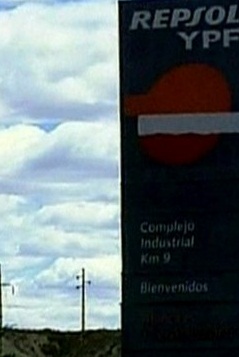 NEW YORK | Amid a fresh gust of optimism as Spain raised more money than anticipated in a pair of short-term bond auctions and after a solid round of U.S. corporate earnings reports, stock markets rallied on Tuesday. However, shares of Spanish oil group Repsol tumbled more than 6% in the wake of the Argentine government’s move to nationalize Repsol’s part of YPF without saying anything about compensation. Repsol’s share price had already fallen by more than 30 percent this year as the nationalizing threat loomed, but the announcement sent it down even further. YPF’s market value has also plunged.
NEW YORK | Amid a fresh gust of optimism as Spain raised more money than anticipated in a pair of short-term bond auctions and after a solid round of U.S. corporate earnings reports, stock markets rallied on Tuesday. However, shares of Spanish oil group Repsol tumbled more than 6% in the wake of the Argentine government’s move to nationalize Repsol’s part of YPF without saying anything about compensation. Repsol’s share price had already fallen by more than 30 percent this year as the nationalizing threat loomed, but the announcement sent it down even further. YPF’s market value has also plunged.
Many uncertainties remain. How much of its value Repsol might recover? The compensation will be determined by a tribunal but, as experts say, investors should not be fooled: the chances of Repsol’s winning are very limited.
Citigroup analysts insist that the movement is negative for Argentina, that ten years ago staged the biggest sovereign debt default in history. But
“the initiative will likely be politically popular and that (President) Cristina Fernandez de Kirchner will likely witness an uptick in her approval ratings.”
In a Wall Street Journal op-ed called ‘Repsol Must Fight for Argentine Compensation’, Andrew Peaple writes that losing YPF leaves Repsol less exposed to a poorly performing business.
“Ms. Kirchner’s complaint against YPF was its supposed underinvestment in Argentina—yet Repsol says the country tied up one-third of its annual capital expenditure. Pressure to invest more might only have intensified had Repsol kept its YPF stake; but it makes only $2.5 net profit per barrel there, 75% below its average elsewhere. Repsol had already reduced its YPF stake from 97% since 2008. The way it has lost all but 6% of its remaining holding is shocking. But Repsol can at least now concentrate on more profitable—and less unpredictable—parts of the world,” Peaple points out.
The seizure of YPF won’t help investment.
“They’re desperate,” chairman of Equity Group Investments Sam Zell said to Bloomberg.“They’re running out of options. I don’t know what they’re going to nationalize next, but I know I don’t want to be there.”
“The volatility of Argentina’s regulatory environment makes it a risky opportunity for (independent oil companies) that could provide the needed capital/technological investments, without which the development of vast resources could be at risk,” said analysts at Credit Suisse.
For Art Patnaude, from The WSJ blog The Source, Argentina expected to have an energy boost to alleviate some of its cash concerns.
“The goal of production increases to reduce the trade deficit could be implausible in practice–the need to invest will exacerbate the problem [the Argentine government is] determined to avoid,” said Peter Hutton, from RBC Capital Markets, quoted by Patnaude.
The question now is whether Argentina will be able to get the financing it needs for YPF after shocking diplomats and investors. And if Sinopec will make a move. The company acquired part of Repsol’s Brazilian business in 2010 and Chinese media reported on Tuesday that it was considering an investment in YPF of up to $15 billion. However, the huge SOE did not comment on that information.





Be the first to comment on "Affaire Repsol: Wall Street criticises Argentina’s move"